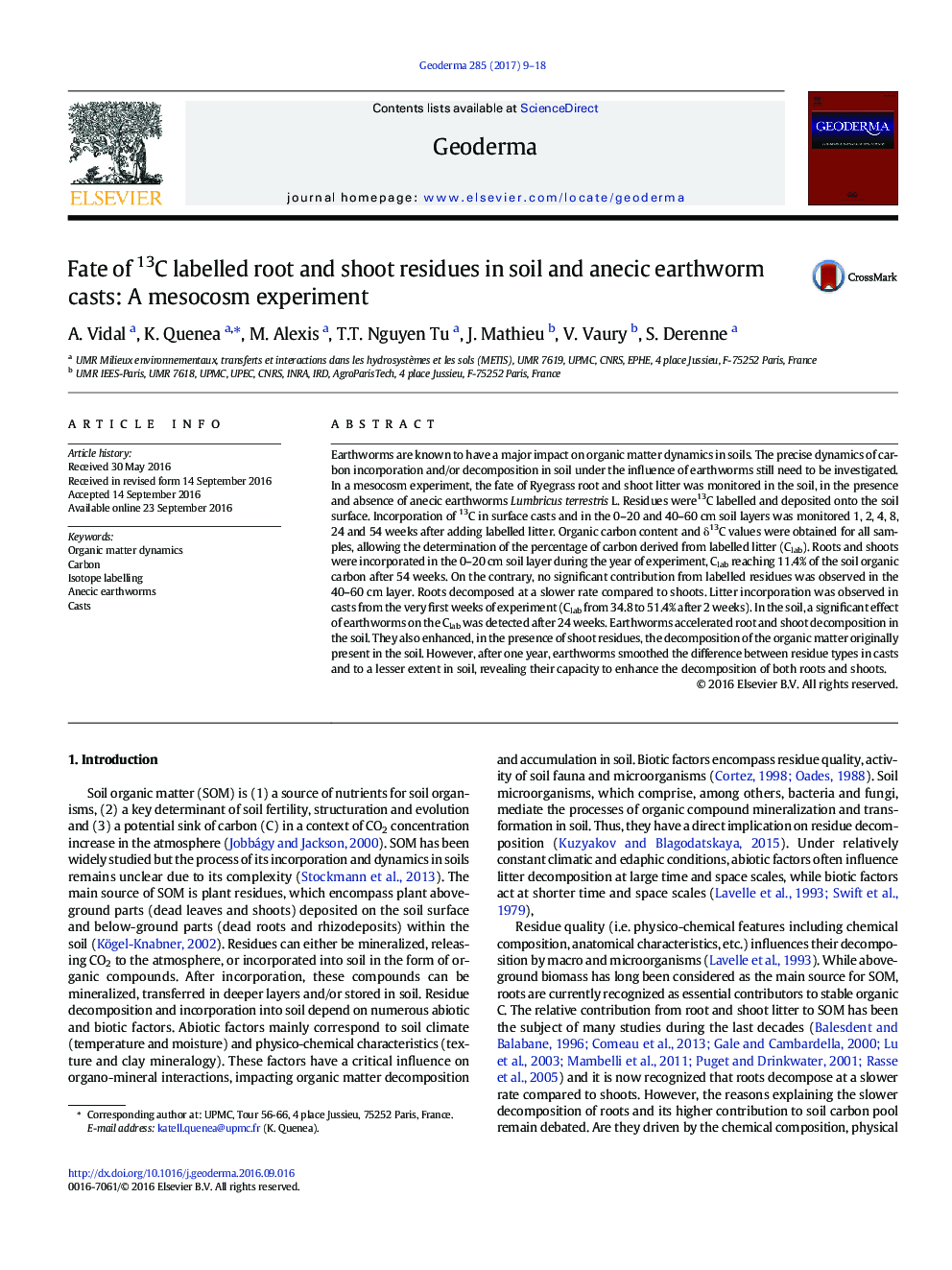| کد مقاله | کد نشریه | سال انتشار | مقاله انگلیسی | نسخه تمام متن |
|---|---|---|---|---|
| 6408189 | 1629432 | 2017 | 10 صفحه PDF | دانلود رایگان |

- Fate of 13C labelled roots and shoots is investigated in mesocosm experiment.
- Earthworms tend to accelerate root and shoot decomposition.
- Roots tend to decompose at a slower rate than shoots.
- The fate of organic carbon is different in soil and casts.
- Earthworms minimize the diverging fate of root and shoot residues.
Earthworms are known to have a major impact on organic matter dynamics in soils. The precise dynamics of carbon incorporation and/or decomposition in soil under the influence of earthworms still need to be investigated. In a mesocosm experiment, the fate of Ryegrass root and shoot litter was monitored in the soil, in the presence and absence of anecic earthworms Lumbricus terrestris L. Residues were13C labelled and deposited onto the soil surface. Incorporation of 13C in surface casts and in the 0-20 and 40-60 cm soil layers was monitored 1, 2, 4, 8, 24 and 54 weeks after adding labelled litter. Organic carbon content and δ13C values were obtained for all samples, allowing the determination of the percentage of carbon derived from labelled litter (Clab). Roots and shoots were incorporated in the 0-20 cm soil layer during the year of experiment, Clab reaching 11.4% of the soil organic carbon after 54 weeks. On the contrary, no significant contribution from labelled residues was observed in the 40-60 cm layer. Roots decomposed at a slower rate compared to shoots. Litter incorporation was observed in casts from the very first weeks of experiment (Clab from 34.8 to 51.4% after 2 weeks). In the soil, a significant effect of earthworms on the Clab was detected after 24 weeks. Earthworms accelerated root and shoot decomposition in the soil. They also enhanced, in the presence of shoot residues, the decomposition of the organic matter originally present in the soil. However, after one year, earthworms smoothed the difference between residue types in casts and to a lesser extent in soil, revealing their capacity to enhance the decomposition of both roots and shoots.
125
Journal: Geoderma - Volume 285, 1 January 2017, Pages 9-18